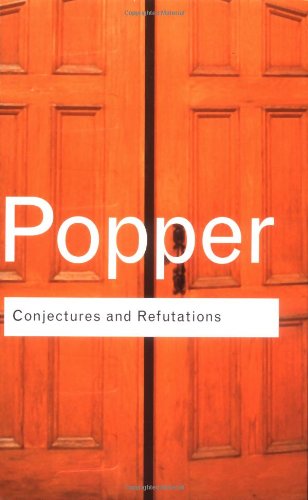
Books, Brochures, and Chapters>Book: Popper , Karl (2002-08-09), RC Series Bundle: Conjectures and Refutations: The Growth of Scientific Knowledge (Routledge Classics), Routledge, Retrieved on 2011-08-28Source Material [www.stephenjaygould.org]
Folksonomies: science philosophy empiricism Memes
28 AUG 2011
 The Difference Between Science and Pseudoscience
The Difference Between Science and Pseudoscience
What I had in mind was that his previous observations may not have been much sounder than this new one; that each in its turn had been interpreted in the light of "previous experience," and at the same time counted as additional confirmation. What, I asked myself, did it confirm? No more than that a case could be interpreted in the light of a theory. But this meant very little, I reflected, since every conceivable case could be interpreted in the light Adler's theory, or equally of Freud's. I...Science makes risky predictions, predicting things that the theory must be strong in order to prove. Popper compares early psychology and its explanations of human behavior that work in all cases with Einstein's theory of relativity and it's risky predictions.
28 AUG 2011
 Karl Popper's Conclusions About Good Theories
Karl Popper's Conclusions About Good Theories
It is easy to obtain confirmations, or verifications, for nearly every theory — if we look for confirmations.
Confirmations should count only if they are the result of risky predictions; that is to say, if, unenlightened by the theory in question, we should have expected an event which was incompatible with the theory — an event which would have refuted the theory.
Every "good" scientific theory is a prohibition: it forbids certain things to happen. The more a theory forbids, the ...Summarized by the criteria of falsifiability, or refutability, or testability.




